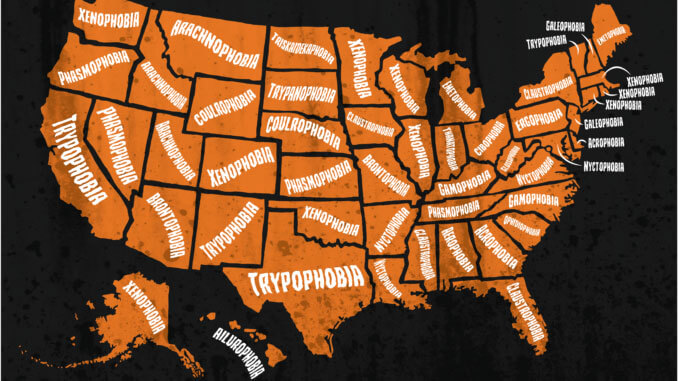A List of Guilty Pleasures
Guilty pleasures are defined as things we love but feel bad about loving because they are not particularly well-regarded (or even seen as socially unacceptable). These things bring us joy but might be considered low-brow, embarrassing, or shameful. As a result, we might keep these guilty pleasures to ourselves and only enjoy them in secret….

Guilty pleasures are defined as things we love but feel bad about loving because they are not particularly well-regarded (or even seen as socially unacceptable). These things bring us joy but might be considered low-brow, embarrassing, or shameful. As a result, we might keep these guilty pleasures to ourselves and only enjoy them in secret.
A few guilty pleasure examples include binge-watching a TV series, playing video games for hours, or having breakfast in bed. I used to feel a little ridiculous about my love of watching old episodes of The O.C. and Lost on lazy Sunday afternoons. Until I casually mentioned it to a friend and realized they had also seen every episode (multiple times). That moment made me question why I ever felt guilty about something so harmless and fun in the first place.
Why do we sometimes feel so bad about the things we enjoy the most? The answer to that question can be a bit complicated, and the exact nature of the guilty pleasure itself can sometimes play a role. Some activities are socially frowned upon. Others involve interests that have been devalued for various reasons. In other cases, social factors and marginalization can even play a role. Sometimes, these behaviors seem like extravagences or indulgences that we couldn’t allow ourselves to enjoy.
Let’s take a closer look at what’s behind this tendency to guilt ourselves and others over the little things we enjoy–and what you can do to feel a little less guilty about your own guilty pleasures.
What Are Guilty Pleasures?
“A guilty pleasure is something that we enjoy, but we know we’re either not supposed to like, or that liking it says something negative about us,” explains Sami Schalk, PhD, an assistant professor of gender and women’s studies at the University of Wisconsin-Madison.
The term “guilty pleasures” itself is a little inaccurate. Research suggests that people experience feelings of shame or embarrassment rather than guilt.
Guilty Pleasure Exampes: A List of Guilty Pleasures

Not everyone feels “guilt” about the same pleasures, but there are some common examples people frequently cite as examples of life’s little joys that they might not want to admit to loving.
Some things we might find ourselves feeling guilty or even embarrassed to admit to enjoying include:
- Watching reality television
- Playing video games for hours on end
- Going on shopping sprees
- Buying ourselves a treat after work
- Reading celebrity gossip
- Scrolling through social media
- Singing in our car
- Checking out our ex’s social media profiles
- Procrastinating
- Eating or drinking right out of the carton
- Popping pimples or picking skin imperfections
- Having dinner delivered when we don’t feel like cooking
- Taking a long bath
- Sleeping in during the week
- Falling asleep in the middle of a movie
- Binge-watching a TV series
- Reading a book during the day
- Not working out
- Listing to songs or music that other people think are lame, boring, or uncool
- Taking selfies
- Wearing socks with sandals
- Arguing with strangers on the internet
- Listening to musicals or show tunes
- Reading erotic novels
- Reading or writing fanfiction
- Gossiping about people we know
- Eating at fast food restaurants
- Watching daytime talk shows
- Having an extra slice of dessert
- Dancing in our living rooms
- Following along with celebrity feuds and rivalry
- Working on our laptops while we are in bed or on the couch
- Hunting for our dream house on Zillow (or checking out how much the people we know paid for their house)
- Listening to the same song over and over again
- Eating breakfast in bed
- Singing in the shower
- Having a midnight snack
- Buying unnecessary gadgets
- Watching cartoons as an adult
- Making secret Pinterest boards for all of our guilty pleasure interests
- Reading our horoscopes
- Buying lottery tickets
- Bringing our own snacks into the movie theater
- Playing RPG games
- Eating an entire pizza by ourselves
- Watching and listening to ASMR or mukbang videos on YouTube
- Collecting action figures or other collectible items
- Eating our favorite comfort foods for dinner
- Buying more books even though we have a pile of unread books at home
- Doing TikTok dances
What are your guilty pleasures? To identify yours, think about the things that you truly enjoy but might not feel comfortable sharing with others. These are often the activities or pleasures you allow yourself to indulge in when you have some time to yourself.
Why We Feel Guilty About Our Guilty Pleasures
So why do we sometimes feel bad–or are made to feel that we should feel bad–about the things that we enjoy? The explanations behind why these pleasures are so often connected to feelings of guilt and shame are complex and varied.
Social expectations often play a significant role. If social norms don’t view an activity as valuable or acceptable, we may feel bad about ourselves for enjoying it. The ideas we’ve internalized all of our lives about what society considers “good” and “bad” affect how we perceive and value what we do.
Some research suggests that guilt can serve an adaptive purpose. It compels us to follow social norms, which helps promote harmony and social acceptance.
But why do we feel guilty about things we enjoy, like low-brow TV or romantasy novels? In one study, researchers found that people tended to feel guilty when it seemed like they were going against personal or social norms of what they felt was acceptable to like and enjoy.
Researchers have also found that feeling guilty about the things we enjoy can actually sometimes make them feel even more pleasurable. Essentially, feeling guilty enhances our enjoyment of the activity.
According to Schalk, guilty pleasures are often connected with certain marginalized identities. Consider how things that are often considered things that women enjoy–think pumpkin spice lattes, makeup, and romance novels–are often dismissed as basic, trite, and unimportant.
Devaluing the things people enjoy sends a message that society also doesn’t value those who enjoy those things.
It’s also why certain types of media–like sports–escape the guilty pleasure stigma, while other forms of entertainment–like dating shows–are labeled “trashy TV.”
The distinction between socially acceptable and stigmatized forms of entertainment, such as sports versus reality TV, highlights how societal norms influence what is considered a guilty pleasure.
The problem is that sometimes our perceptions of what is acceptable doesn’t reflect what everyone else is doing. In an article for Psychology Today, Alan Jern, PhD, suggests that this may be due to pluralistic ignorance. “When people endorse a norm publicly but hold a different private belief because they assume (incorrectly) that everyone else’s public attitudes reflect their private beliefs,” he explains.
While we might dunk on so-called “trash tv shows” like Love Island and Selling Sunset, there’s a reason why those programs are so popular—everyone else is watching them, too. This raises the question: if we experience guilt because we think the things we enjoy are outside of the expected social norms, should we really feel bad if everyone else is enjoying them as well?
Should I Feel Guilty About My Guilty Pleasures?
We all have them–but should you really feel guilty or ashamed of the things you enjoy? The answer to this question depends. In most cases, our guilty pleasures are NOT really things we should feel bad about. As long as the activity isn’t hurting anyone, isn’t interfering with your ability to function in your daily life, and doesn’t hold you back from reaching your goals, then there probably isn’t actually any harm.
Still, you might find yourself keeping your guilty pleasures to yourself because you are afraid of what others might think.
If your guilty pleasures are harmful, destructive, or interfere with your ability to function, then it is something you need to address. For example, if your interest or behavior makes it impossible for you to maintain relationships, attend school, or function at your job, it’s important to talk to your doctor or a mental health professional.
How to Stop Feeling Guilty About Your Guilty Pleasures
Experts suggest that we should drop “guilty pleasures” from our vocabulary. The bottom line is that we shouldn’t feel guilt and shame about things we enjoy that aren’t harmful or disruptive.
Enjoy Things In Moderation
Guilt can sometimes be a sign that something is out of balance. You might feel bad because you know you are enjoying one thing too much while neglecting others too much. For example, you might feel bad about enjoying an extra slice of dessert because you’ve been skipping your workout and eating more fast food lately.
The key to enjoying your guilty pleasures is to do so in moderation. Have the extra slice of cake, but make sure you stick to a balanced, nutritious diet most of the time.
Worry Less About What Others Think
If your guilt stems from worrying about what others might think, it’s important to examine why you feel this way.
Is the activity really that shameful, or are you just unsure of how others might react? Or is your social network failing to give you the support you need?
Examining why you fear other people’s reactions can give clues about what you should do next. It might involve sharing more and being more vulnerable and open with the people in your life.
In other cases, it might involve seeking new friendships with more supportive and less judgmental people. You may find it helpful to seek a sense of community with other people with the same interests.
Evaluate Your Guilt Triggers
Pay attention to the things that trigger feelings of guilt. Do you feel embarrassed or ashamed because you are worried that they reveal some personal shortcomings or insecurities? Was there a relationship in your past that might have contributed to these feelings? Once you understand these triggers, you can start taking steps to address them.
Practice Self-Acceptance
Focus on accepting yourself, including all of the quirks and idiosyncrasies that make you who you are. Remember that your personal preferences are unique and that you don’t need the approval of others to enjoy them.
Final Points
There’s usually no reason to feel guilty about your guilty pleasures–as long as these activities are harmless and don’t cause distress or disruption to yourself or others. The key is to find ways to enjoy these pleasures in healthy ways—such as treating yourself in moderation. If you are struggling with feeling judged for the things you love, try seeking a supportive community of people who share your interests, tastes, and hobbies.

Sources:
Goffin, K., & Cova, F. (2019). An empirical investigation of guilty pleasures. Philosophical Psychology. 32(7), 1129–1155. https://doi.org/10.1080/09515089.2019.1646897
Goldsmith, K., Cho, E. K., & Dhar, R. (2012). When guilt begets pleasure: The positive effect of a negative emotion. Journal of Marketing Research, 49(6), 872–881. https://doi.org/10.1509/jmr.09.0421
Houben, K., Roefs, A., & Jansen, A. (2010). Guilty pleasures. Implicit preferences for high calorie food in restrained eating. Appetite, 55(1), 18–24. https://doi.org/10.1016/j.appet.2010.03.003
Jern A. Guilty pleasures are just pleasures. Psychology Today. 2020. https://www.psychologytoday.com/us/blog/overthinking-tv/202011/guilty-pleasures-are-just-pleasures
Tangney, J. P., Stuewig, J., & Mashek, D. J. (2007). Moral emotions and moral behavior. Annual Review of Psychology, 58(1), 345–372. https://doi.org/10.1146/annurev.psych.56.091103.070145





